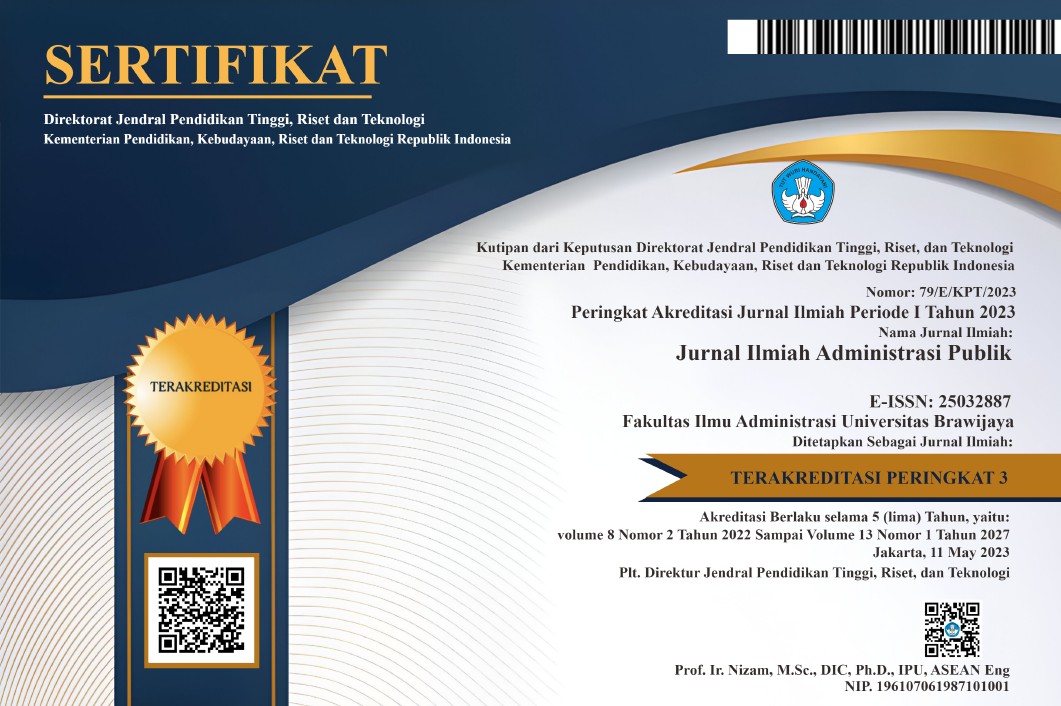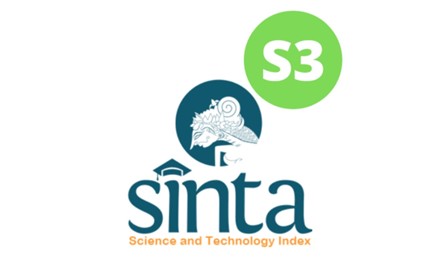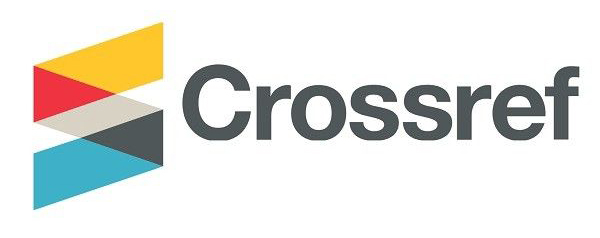Implementasi Kebijakan Penumbuhan Kelompok Santri Tani Milenial di Bidang Pertanian (Studi di Balai Besar Pelatihan Peternakan Kota Batu)
DOI:
https://doi.org/10.21776/ub.jiap/2023.009.02.11Keywords:
implementation; Santri Tani Milenial; pertanianAbstract
As an agrarian country, Indonesia has significant potential for developing its agriculture sector. However, the majority of its agricultural workforce is elderly, and there is a lack of young talent entering the field, which has implications for the sustainability of agriculture in Indonesia. The issuance of PERKEMENPER 09/2019 has brought a breath of fresh air to the Indonesian agricultural sector through the millennial santri program. This research aims to assess the extent of the implementation of PERKEMENPER 09/2019 in Islamic boarding schools (pondok pesantren) with agricultural potential and promising conditions. This study employs a qualitative approach, using indicators adapted from Van Meter Van Horn, adjusted to the field conditions. The research results indicate that all three Van Meter Van Horn indicators (standards, resources, and external environment) show favorable outcomes. Islamic boarding schools and their students have made efforts to comply with PERKEMENPER 09/2019. Supporting resources have also been provided through human resource development programs and financial assistance. Additionally, the external environment, including the social and economic conditions in the city of Batu, is highly conducive to the implementation of these policies.
References
Bustomi, I., & Umam, K. (2017). Strategi Pemberdayaan Ekonomi Santri Dan Masyarakat di Lingkungan Pondok Pesantren Wirausaha Lantabur Kota Cirebon. Al-Mustashfa: Jurnal Penelitian Hukum Ekonomi Syariah, 2(1), 79. https://doi.org/10.24235/jm.v2i1.1625.
Charina, A., Kusumo, R. A. B., & Sadeli, A. H. (2017). Penerapan Teknologi Informasi dan Komunikasi pada Agribisnis Sayuran Organik. Jurnal Agricore, 2(2): 10-17
Dumasari. (2020). Pembangunan Pertanian. Pustaka Pelajar
Heriqbaldi, U. & Rahman, D. (2019). “Quo Vadis Pertanian”, Menjemput Musim Semi: Transformasi dan Reformasi Ekonomi 2019-2024. Intrans Publishing.
Nawawi, I. (2009). Prilaku Administrasi Kajian, Teori dan Praktis. ITSPers.
Nurhadi, I. (2018). Pemberdayaan Masyarakat Pondok Pesantren untuk Meningkatkan Minat Masyrakat: Studi Kasus Pemberdayaan Santri Pondok Pesantren Nurul Ulum Munjungan. Al-Idarah: Jurnal Kependidikan Islam, 8(1), 142. https://doi.org/10.24042/ alidarah. v8i1.3085
Peraturan Pemerintah nomor 17 tahun 2015 tentang Ketahanan Pangan dan Gizi
Prayitno, P. (2016). Pemberdayaan Sumber Daya Santri Melalui Entrepreneurshipo di Pondok Pesantren Al-Ashriyyah Nurul Iman Islamic Boarding School Parung Bogor. Quality, 4(2), 310–331
Sugiyono. (2018). Metode Penelitian Kualitatif Untuk Penelitian yang Bersifat: Eksploratif, Interaktif, dan Konstruktif, Edisi Ke-3. Alfabeta.
Susilowati, S. H. (2016a). Fenomena Penuaan Petani dan Berkurangnya Tenaga Kerja Muda serta Implikasinya bagi Kebijakan Pembangunan Pertanian. Forum Penelitian Agro Ekonomi, 34(1), 35–55.
Susilowati, S. H. (2016b). Kebijakan Insentif Untuk Petani Muda: Pembelajaran dari Berbagai Negara dan Implikasinya bagi Kebijakan di Indonesia. Forum Penelitian Agro Ekonomi, 34(2), 103. https://doi.org/10.21082/fae.v34n2.2016.103-123
Undang – Undang nomor 23 Tahun 2014 tentang Pemerintahan Daerah
Van Meter, D., & Carl, E. (1975). The Policy Implementation Process A Conceptual Framework in Administration and Society, Sage
Widodo. (2008). Analisis Kebijakan Publik: Konsep, Aplikasi dan Analisis Proses Kebijakan Publik. Bayumedia
Winarno, B. (2014). Kebijakan Publik, Teori, Proses dan Studi Kasus. CAPS.
Downloads
Published
Issue
Section
License
Copyright (c) 2023 Jurnal Ilmiah Administrasi Publik

This work is licensed under a Creative Commons Attribution-NonCommercial 4.0 International License.
If your paper is accepted, the author identified as the formal corresponding author for the paper will receive an email prompting them to login into Author Services; where via the JIAP Author Licensing Service they will be able to complete the license agreement on behalf of all authors on the paper.















